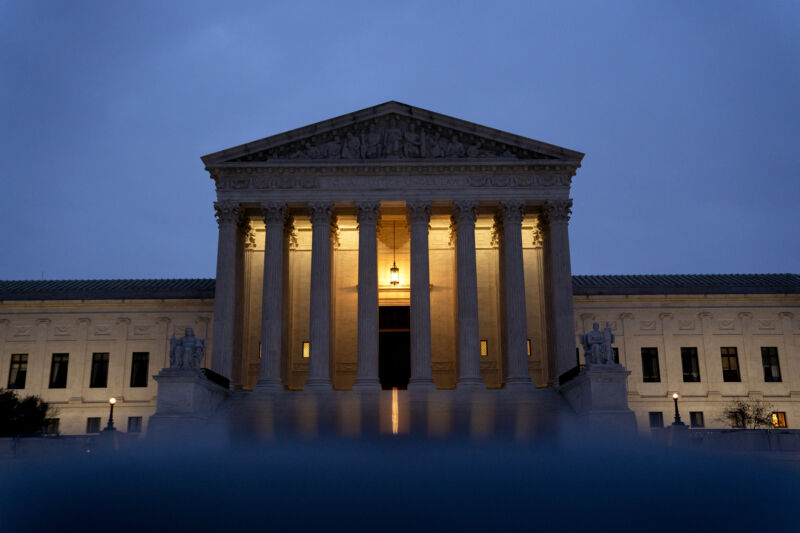
Yesterday, the US Supreme Court decided that a lower court’s logic was flawed when it convicted a Colorado man, Billy Raymond Counterman, for stalking. Counterman had sent hundreds of online messages—some of which the lower court ruled that a reasonable person would consider threatening—to a local musician, Coles Whalen, whom he’d never met.
The Supreme Court ruled that the objective standard that the Colorado lower court used to convict Counterman violated his First Amendment rights and, if upheld, could have a chilling effect on online speech.
“The State prosecuted Counterman in accordance with an objective standard and did not have to show any awareness on Counterman’s part of his statements’ threatening character,” the SCOTUS opinion said. “That is a violation of the First Amendment.”
Now the Supreme Court has sent the case back to the lower court to apply a different test—instead using a subjective recklessness standard that’s used to decide defamation cases. Free speech advocates applauded the decision for ensuring that nonthreatening speech like sarcasm or hyperbole won’t be taken out of context and lead to legal consequences.
The trade-off, Supreme Court Justice Elena Kagan wrote in her opinion, is that it will now be harder to prosecute people sending threats online at a time when advocates have warned and justices have acknowledged that the Internet is becoming more toxic.
“No doubt, the approach in all of those cases has a cost: Even as it lessens chill of protected speech, it makes prosecution of otherwise proscribable, and often dangerous, communications harder,” Kagan wrote.
To uphold Counterman’s conviction, the state of Colorado must now prove that Counterman acted with reckless disregard while knowing that his barrage of online messages risked harming Whalen.
“Fuck off permanently,” read one. “Staying in cyber life is going to kill you,” read another. A third said, “You’re not being good for human relations. Die.”
The Washington Post reported that Counterman may have sent Whalen as many as a thousand messages from 2014 to 2016—so many that Whalen said she couldn’t even read them all. But she also felt too threatened to ignore the potentially serious consequences of never responding, canceling some of her shows and hiring a bodyguard at one point. Her mental health deteriorated as she lived for years in fear and considered ending her dreams of being a musician to avoid the unwanted attention.
Counterman’s lawyer, John Elwood, has argued that his client suffers from mental illness and was not aware that his messages were being perceived as threatening, CNN reported.
“The bedrock principle underlying the First Amendment is that the government may not prohibit expression of an idea simply because society finds the idea itself offensive or disagreeable,” Elwood successfully argued during the case.
David Greene, senior staff attorney and civil liberties director for the Electronic Frontier Foundation (EFF), told Ars that it’s unclear how much of a record there is documenting Counterman’s subjective feelings in this case. That could make it harder for Colorado to uphold Counterman’s stalking conviction, Kagan wrote, if “the State cannot prove what the defendant thought.”
The EFF filed a brief in the case arguing for an even more rigorous subjective standard than the recklessness standard that SCOTUS decided is appropriate in these cases. But Greene acknowledged that while a subjective standard shields nonthreatening online speech, it may not be helpful in some stalking cases because it’s common for the accused person to be delusional and thus unaware of harms caused by communications perceived as threatening. Partly for that reason, Greene couldn’t comment on whether Colorado would likely be successful in upholding Counterman’s stalking conviction.
https://arstechnica.com/?p=1950612

